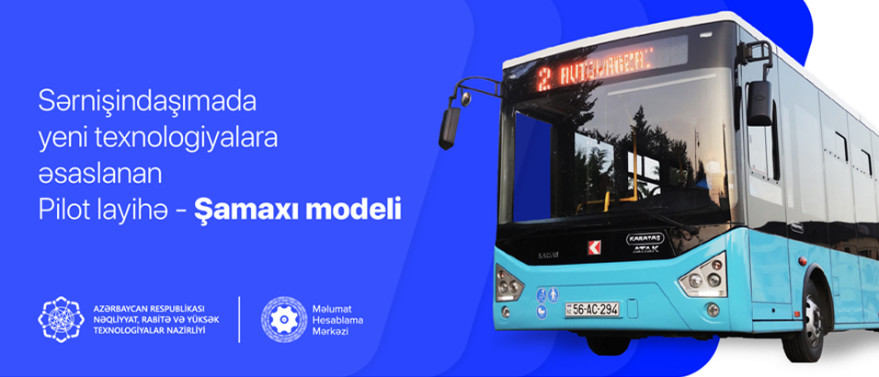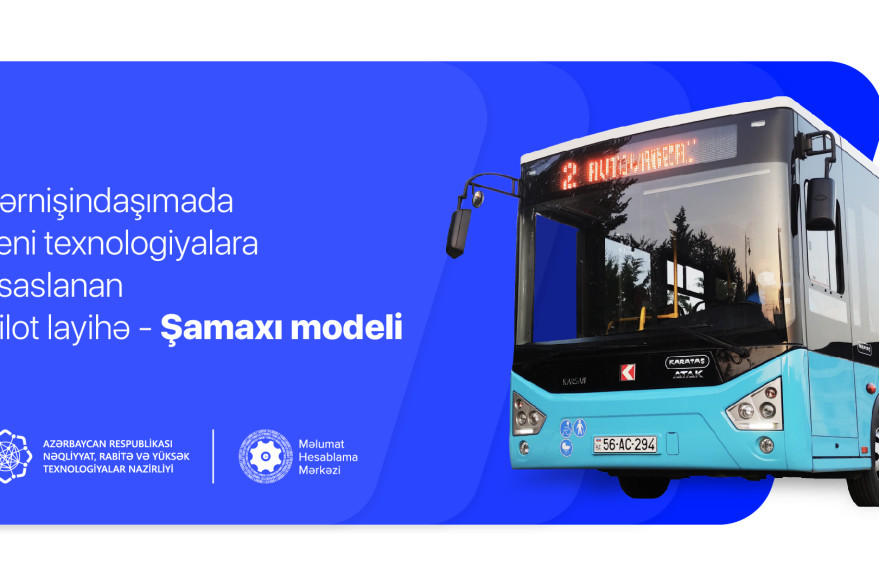New payment system in passenger transport – Shamakhy model

With the technical operatorship of the Data Processing Center of the Ministry of Transport, Communications and High Technologies (MTCHT), a pilot project that introduces the latest innovations in cashless payments used in passenger transportation has been launched in Shamakhy city. Thus, a new system that supports contactless technology and allows making payments with bank cards and mobile devices has been installed in several buses in Shamakhy.
The system, which has ample opportunities, combines such features as NFC technology, payment using a QR code, special discounts for social categories, real time payment control. Note that the system can be integrated into the payment system of all public transport.
The system supports any bank cards. A citizen who does not have a bank card can use Prepaid bank cards provided by Azer-Turk Bank OJSC to use this service. These cards can be used not only for travel on public transport, but also for other payments (utility payments, purchase in a stores, etc.).
This card can be obtained from branches of Azer-Turk Bank OJSC, branches and departments of Azerpost LLC. The cards will also be available on special devices installed in different parts of the city.
For this project, a special mobile application based on augmented reality technology has been developed in Azerbaijani, Russian and English. Through the use of application, it will be possible to get information about tourist sites, historical places of Shamakhy, to get directions. To do this, you just need to hold the camera on the Prepaid card, opened through the mobile application.
Note that the sponsor of the project is Mastercard, and the regulatory body is the State Road Transport Service under the Ministry of Transport, Communications and High Technologies. Within the framework of the project, card processing and financing services will be provided by Azer-Turk Bank OJSC.
It should also be noted that the implementation of such projects at the national level reduces physical contact, supports the development of smart city projects, and also increases the level of citizen satisfaction.

